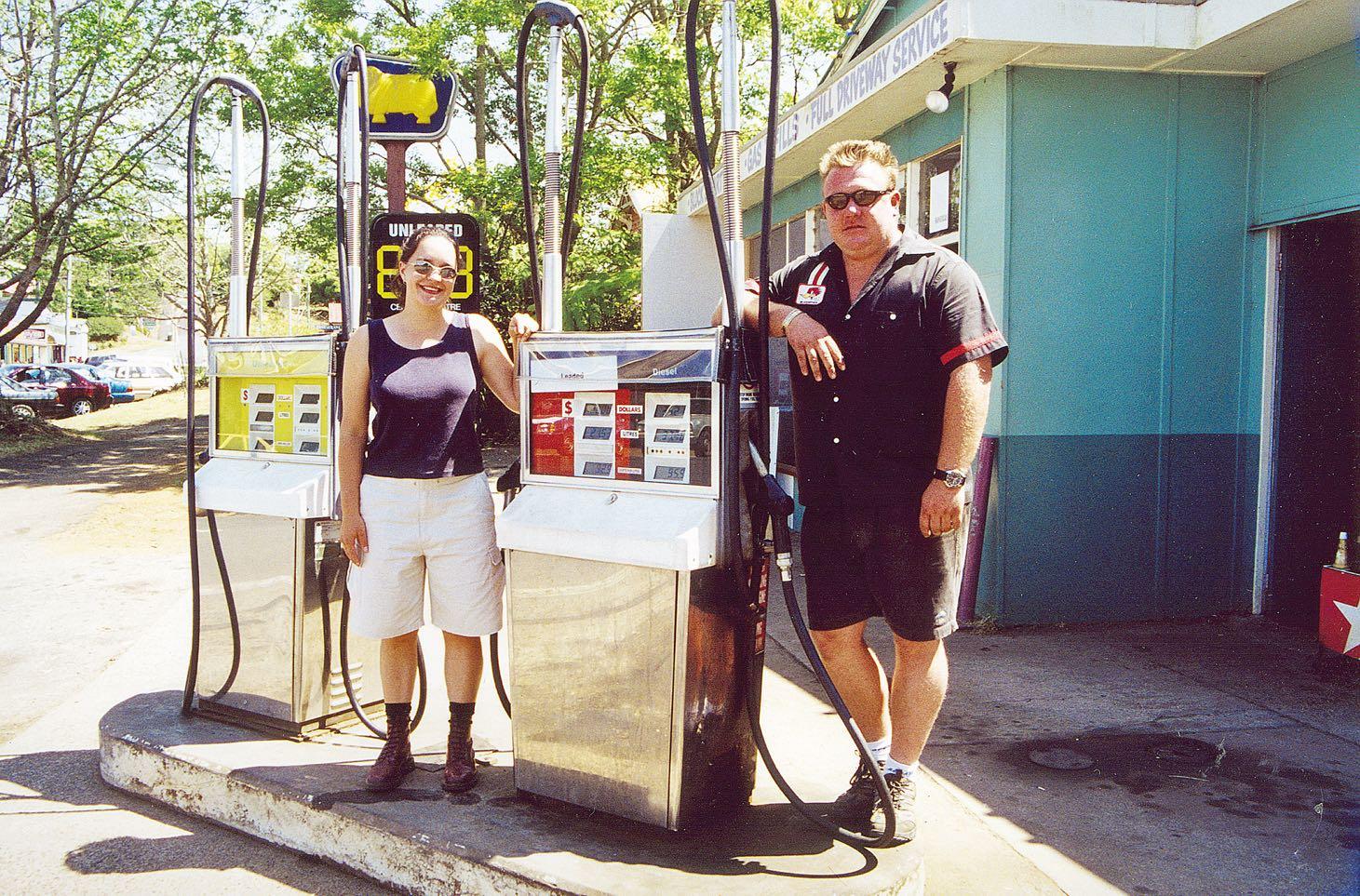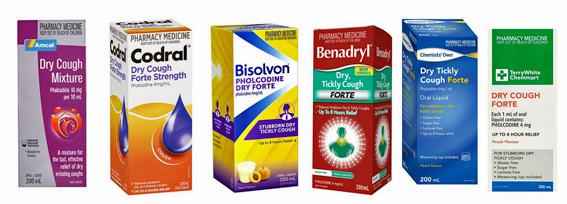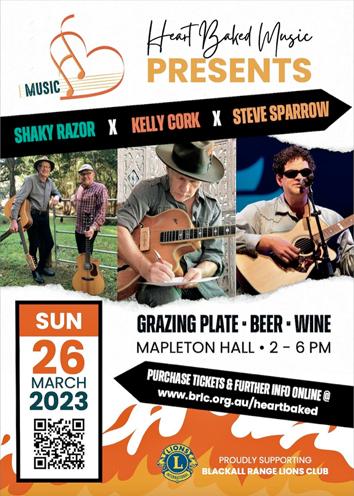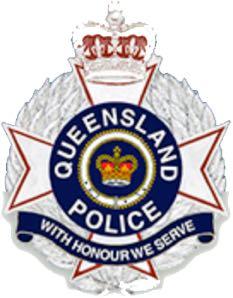
14 minute read
The Hinterlandgrapevine Online News
Maleny Commerce News
Have you got your Local Shopping Gift Card Yet?
Next Chamber Network Breakfast
Why Shop Locally?
While it may not be possible to source all our needs from our local retailers and tradesman, here are a few reasons to think twice before you make your next purchase:
It Creates local jobs and it is personal;

Shopping locally helps Australia grow;
Shopping locally gives better consumer choice and better customer service because you are shopping with a friend; Assists local businesses support local community & sporting groups;
It reduces your carbon footprint
Will you really support local businesses?
About Maleny Commerce
Maleny and District Chamber of Commerce and Industry Inc. is an incorporated body representing the business community since 1986. It is now known as Maleny Commerce.

The Chamber represents the local Maleny and District business community. Join us at one of our monthly business breakfasts. www.malenycommerce.org.au
The next Maleny Commerce Business Chamber is holding the March 2023 Breakfast meeting on Tuesday 14th March, 2023 at 7a.m. at the Orangery Maleny.
The Maleny Chamber exists to promote, encourage and assist local businesses.
To contact the Maleny Chamber simply email: admin@malenycommerce.org.au

Who remembers when, where and how these businesses served Maleny.
Watson’s Garage in 2010. Watson’s Garage, established in 1964 traded in Maple Street, Maleny for over 60 years at the corner of Fig and Maple Streets, before closing in November 2021.
Mama
Make Australia Make Again!
If you want to live in a country that builds things you have to buy things that your country builds!
https://issuu.com/Maleny-Grapevine-Community-News
From the age of 10 until 18, any offence is dealt with under the Youth Justice Act, which technically defines that person as a "child offender". Children under this age cannot be held criminally responsible for their actions. Much has been reported in the media about the level of juvenile crime, but there is no one answer to the problem. Simply incarcerating juveniles or just spraying money at the problem are not the answer. More crimes are being committed by a constant group of young offenders thus distorting the real situation. Parents have a big part to play in reducing juvenile crime..
There are a number of locations around Queensland where juvenile crime is “out of control”, again mostly committed by a smaller number of youth committing many offences.
Juvenile crime is a serious problem in Queensland and across Australia. It is a major source of crime, with young people accounting for a disproportionate share of the total number of offences. In recent years, the level of juvenile crime has been increasing, with a number of complex social and economic factors contributing to the problem.
The causes of juvenile crime are varied and complex, but they can be broadly categorised into three main areas: social, economic and environmental. Social causes include family breakdown, peer pressure and a lack of positive role models. Economic causes include poverty, unemployment and a lack of access to suitable education and employment opportunities. Environmental causes include poor housing, a lack of safe recreational spaces and inadequate access to health and social services.
In Queensland, the legal implications of juvenile crime are governed by the Youth Justice Act 1992. This Act sets out the range of penalties that may be imposed on young offenders, and outlines the rights of young people in the criminal justice system.
Contained herein are some of the challenges parents face when it comes to juvenile crime, as well as the assistance available to help them in dealing with the problem. We also provide some advice and strategies for prevention and intervention, and highlight the legal implications of juvenile crime.
It is hoped that parents will have a better understanding of the nature of juvenile crime in Queensland, the challenges they face and the assistance available to help them.
They will also have an understanding of the legal implications of juvenile crime and strategies for prevention and intervention. Juvenile crime in Queensland is defined as any illegal act committed by a person aged under 18. It covers a wide range of
Who Gives A Crap? - We Do!
What do we really mean when we say our toilet paper helps build toilets?
We trust that our partner organisations know how to best improve global access to proper sanitation – that means our donation could go to building toilets. To put it into perspective, a child under five dies every two minutes from diarrhoea diseases caused by poor water and sanitation. Profits from the sale of this toilet paper is used to building toilets, but could also mean it supports larger clean water projects. This is a win - win situation!

offences, from minor misdemeanours to serious or violent crimes.
In Queensland, juvenile crime is divided into two categories: criminal offences and summary offences. Criminal offences, such as assault and robbery, are seen as more serious offences and are handled in the Children's Court. Summary offences, such as graffiti and drinking alcohol in public, are seen as less serious offences and are handled in the Magistrates Court.
Juvenile crime can be seen as a complex issue, with a range of causes and contributing factors. These include family issues, such as family dynamics and parenting styles, as well as environmental factors, such as poverty and substance abuse.
It is important to note that juvenile crime is not necessarily a reflection of the child’s character or values. Many children who commit criminal offences have been exposed to difficult experiences or environments, and may have struggled to cope with the pressures and challenges of life.
people can be significant. It is therefore important for parents and guardians to discuss the issue of juvenile crime with their children, and to ensure that they are aware of the potential consequences of their actions.
Statistics on Juvenile Crime in Queensland
Many Parents no longer in charge of their children!
As parents, understanding juvenile crime in Queensland is essential to keeping your children safe. To help you understand the scope of the problem and the measures being taken to address it, here is an overview of juvenile crime statistics in Queensland.
Families have the primary responsibility for the upbringing, protection and development of their children.
The law allows parents to bring up their children according to their own values and beliefs.
In the 1970’s on Maryborough Television there was an advertisement at 8.30p.m. each night for a furniture retailer named Dick Elmer.
Dick would simply ask “Do you know where your children are at this moment?”
At 11.00p.m. he would run another advertisement advising; “All children under 14 years of age should now be asleep in their bed.”
There are various strategies that can be employed to reduce juvenile crime. These include early intervention programmes, such as mentoring and counselling services, as well as youth justice programmes, such as diversionary programs. It is important to remember that juvenile crime is a serious issue, and that the consequences for young
Perhaps these statements have the same relevance today and parents should take more responsibility for their younger children.
In 2020, the juvenile offender population in Queensland was estimated to be around 7,000. Over the past five years, the rate of juvenile crime has decreased by 12.6%. However, the severity of juvenile crime has increased, with more serious offences such as assaults, robberies and sexual offences being committed. In 2019, juveniles accounted for 11.5% of all criminal offences in Queensland.
Youths aged 10-17 years were the primary offenders, accounting for 82.4% of all juvenile offences in 2019. The most commonly committed offences by juveniles were acts intended to cause injury, property damage and theft, unlawful use of motor vehicles and serious driving offences, often resulting in death or serious injury to innocent parties. These are followed by public order offences and drug-related offences.
The majority of juvenile offenders in Queensland in 2019 were male. Around 74.4% of all juvenile offenders in Queensland were male, and 25.6% were female. Indigenous juveniles accounted for 27.4% of all juvenile offenders in 2019, although they make up only 4.3% of the overall population in Queensland.
The Queensland Government has taken some measures to address juvenile crime in the state, but these have mainly proved to ineffective. In conclusion, juvenile crime in Queensland is a pressing issue that requires action. By understanding the statistics on juvenile crime in Queensland, parents can be better informed and take measures to keep their children safe.
Types of Juvenile Crime in Queensland
Juvenile crime is a serious issue in Queensland, as it is in many other parts of Australia. Parents need to be aware of the types of juvenile crime that may be occurring in their area so that they can take steps to protect their children. This chapter of Facing Juvenile Crime in Queensland: A Parent's Guide will provide an overview of the different types of juvenile crime that occur in Queensland, so that parents are better informed about the risks their children may face.
The most common type of crime committed by juveniles in Queensland is theft and property damage. This can include theft of items such as bicycles, motor vehicles, and other property, as well as acts of vandalism such as graffiti and destruction of property. It is important for parents to be aware of how to protect their property and to be vigilant in reporting any suspicious activity to the police.
Another common type of juvenile crime in Queensland is drug-related offences. This can include the manufacture and sale of drugs, possession of drugs, or the use of drugs. Parents should be aware of the dangers of drugs, and should talk to their children about the potential consequences of drug use. They should also be sure to monitor the activities of their children and report any suspicious activity to the police.
Assault is another type of crime committed by juveniles in Queensland. Assault can include physical assaults such as punching, kicking, or hitting someone, or it can include verbal assaults such as threatening someone. Parents should be aware of the consequences of assault, and should discuss the issue with their children and emphasise the importance of respecting others.
Finally, there are a number of other types of juvenile crime that occur in Queensland, such as sexual assault, burglary, fraud, and robbery. Parents should be aware of the risks associated with these activities and should discuss them with their children. They should also monitor the activities of their children and report any suspicious activity to the police.
In conclusion, it is important for parents to be aware of the different types of juvenile crime that occur in Queensland. By being informed and proactive, parents can help to protect their children from becoming involved in criminal activities.
Factors Contributing to Juvenile Crime
There is no single cause of juvenile crime, as there are many factors that contribute to it. In Queensland, there are several key factors that are known to be linked to juvenile crime. These include a lack of family support and supervision, poverty and social isolation, mental health problems, drug and alcohol abuse, and trauma. In this section, we will look at each of these factors in more detail to help parents better understand the roots of juvenile crime in Queensland. Family support and supervision is a key factor in preventing juvenile crime. When children lack a supportive family environment, they can be more likely to become involved in criminal activity. Parents can help provide support by being present and attentive to their children, and setting clear expectations and boundaries. This will help to ensure that children feel secure and understood, and will help to prevent them from engaging in criminal activity.
Poverty and social isolation are also linked to juvenile crime in Queensland. When children grow up in low-income households, they may feel disconnected from their peers, leading to feelings of isolation and depression. This can lead to juvenile crime, as these children may seek out ways to feel connected to others. Parents can support their children by providing the resources they need, such as food, clothing, and educational materials, to ensure that they feel included and connected to their peers. Mental health problems can also be a factor in juvenile crime in Queensland. When children are struggling with mental health issues, such as depression or anxiety, they may turn to criminal activities to cope. Parents should be sure to recognise the signs of mental health issues in their children, and seek help and support from mental health professionals if needed.
Drug and alcohol misuse can also lead to juvenile crime. When children are exposed to drugs and alcohol, they may be more likely to be involved with criminal activities. Parents can help to prevent this by monitoring their children’s activities, and ensure that they do not have access to drugs and alcohol. Finally, trauma can also be a factor in juvenile crime. When children experience traumatic events, such as abuse or neglect, they may be more likely to turn to criminal activities in order to cope. Parents should be sure to recognise the signs of trauma in their children, and seek help and support from professionals if needed.
In conclusion, there are many factors that can contribute to juvenile crime in Queensland. By understanding these factors, and taking steps to address them, parents can help to prevent their children from becoming involved in criminal activities.
Prevention and Early Intervention Programs
When addressing juvenile delinquency, prevention and early intervention are key. Queensland has numerous programs and resources in place to help parents and families prevent and address juvenile crime.
The Queensland Government’s Department of Youth Justice has a variety of prevention and early intervention programs. These programs target young people at risk of delinquency. The department provides mentoring and support services to young people, as well as education and training programs to help them make better decisions.
The Queensland Government also provides some youth support services, which focus on helping young people and their families at risk of offending. These services are tailored to meet the needs of young people and their families. They typically include counselling, case management and individualised advice.
Queensland also has a range of community organisations that focus on prevention and early intervention. These organisations offer a variety of activities, such as support groups, skills training, and education programs. They also provide mentoring and advocacy services to young people and their families.

Parents do have a major role to play in preventing juvenile delinquency. Research has found that parental involvement is one of the most effective ways of preventing juvenile delinquency. Parents can help their children by setting clear rules and expectations, providing support and guidance, and building a positive relationship with their children.
Finally, it is important for parents to be aware of the signs of juvenile delinquency. This includes changes in behaviour, such as increased aggression, truancy, and involvement in criminal activities. If parents notice any of these signs, they should seek professional help as soon as possible.
By taking advantage of the prevention and early intervention programs available in Queensland, parents can help to prevent and address juvenile crime.
These programs provide support, guidance and education to young people and their families, and can help to create a safer and healthier community.
New eMail scam
There is a new scam doing the rounds at the moment. It is an email purporting to come from Australia Post advising that they were holding a parcel for delivery, however there is a delivery fee to be paid prior to delivery.
It the advises to click on a button (Send my package) in the email to pay and make arrangements for delivery. Clicking on the button allows a malware to enter your computer thus allowing private information to be obtained.
Just be careful when opening unknown and unexpected emails. Once the money is gone it is unlikely that you will get it back.
Cough mixtures recalled
Dozens of cough medicines are being recalled by the Therapeutic Goods Administration (TGA) due to a potentially life-threatening ingredient. The recall is caused because those medications contain pholcodine. Pholcodine is a danger to patient should they need general anaesthesia for any reason.

Pholcodine can cause an anaphylactic reactions with serious consequences, including death under certain circumstances.
https://www.tga.gov.au/news/media-releases/ pholcodine-cough-medicines-cancelled-tga-andrecalled-pharmacies-safety-reasons.
Maleny SES Volunteer group
Be Prepared for severe weather events
What to do if you need assistance
For life threatening emergencies, call Triple Zero (000).For storm and flood related property damage.
Call the
State Emergency Service: 132 500.
To keep up to date with Emergency Warnings
Tune into warnings and updates from your local ABC radio and TV stations
Follow Maleny SES Group via their Facebook Page: https://www.facebook.com/MalenySES

Clean up Australia Day - March 5th

Residents are invited to be part of the 33rd annual Clean Up Australia Day on Sunday, March 5th. To register, simply visit the Clean Up Australia Day website at www.cleanup.org.au/cleanupaustraliaday https://issuu.com/Maleny-Grapevine-Community-News then select ‘join a clean-up’ and search for an event nearby by entering your postcode or suburb. with https://issuu.com/Maleny-Grapevine-Community-News
Sunshine Coast Council believers that “Clean Up Australia Day” was a reminder to respect our environment and love where we live.
From the north to the south, east to the west, Queensland is in the grip of a juvenile crime spree. Not just simple offences, more ofter serious offences from murder - serious assaults - unlawful use of motor vehicles and arson. Many peoples lives are ruined by the actions of juveniles committing serious crimes.
Crime figures are continuing to rise, but those figures reveal that a small core of return offenders are committing the majority of the serious crimes. Figures show that 10% of child offenders are responsible for 43% of all child offences in Queensland.
Over the past number of years there has been a general reduction in the conditions and penalties placed on juvenile offenders. Services to oversee court decisions have been reduced or not increased to keep up with a continually growing population. In 2018 a three month review of juvenile crime was reviewed by Mr. R. Atkinson and the report handed to the government in June 2018. The basis of the report found that early intervention was the key. This intervention should be required to include parent and family intervention from a juveniles early age. It is not enough to rely on government intervention only.
Much attention has been given to “the rights of the offenders” at the detriment of “the rights of the victims”.
Throughout the state the general population has had enough and has demanded that some action be taken to reign in the young offenders.
In February 2023, the Queensland Government, after criticising Queensland courts for not doing their job and complaints by the Queensland public the government had a re-think about the problem and allocated $332m in additional funding towards the problem. There must be a plan and policy to dealing with the offenders and then an accounting of result of that intervention.
Diversion processes should be supported with new approaches to information sharing, improved assessment processes and enhanced referral pathways and support services for children as well as their families and carers.
Truthful tells us about the things that he passed on to his daughters
He reminds us that one thing we need to do is cancel our credit cards before we die. This is just one reason why he has that opinion!
This is what happened when his poor mother died recently without cancelling her credit card this past January, and her bank billed her for February and March for their annual service charges on her credit card, and then added late fees and interest on the monthly charge.
The balance had been $0.00, there is now somewhere around $60.00 in charges.
Truthful placed a call to her bank:
TJ. : ”I am calling to tell you that my Mum died in January.”
BANK: ”The account was never closed and the late fees and charges still apply.”
TJ. ”Maybe, you should turn it over to collections.”
BANK ”Since it is two months past due, it already has been.”
TJ : “So, what will they do when they find out she is dead?”
BANK ”Either report her account to the frauds division or report her to the credit bureau, maybe both!”
TJ ”Do you think God will be mad at her?”
BANK : ”Excuse me?”
TJ. ”Did you just get what I was telling you . . . the part about her being dead?”
BANK : ”Sir, you’ll have to speak to my supervisor.” Supervisor gets on the phone:
TJ ”I’m calling to tell you, my MUM died in January.”
BANK ”The account was never closed and the late fees and charges still apply.”
TJ. ”You mean you want to collect from her estate?”
BANK (Stamer) “Are you her lawyer?”
TJ ”No, I’m her son.” (Lawyer info given)
BANK ”Could you fax us a certificate of death?”
TJ. : “Sure.” (fax number is given) After they get the fax:
BANK : ”Our system just isn’t set up for death. I don’t know what more I can do to help.” (How true is this)











